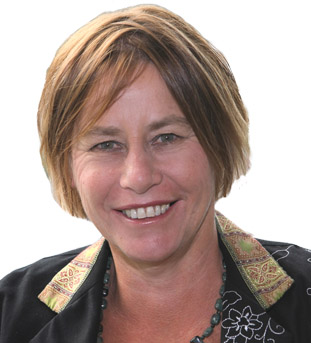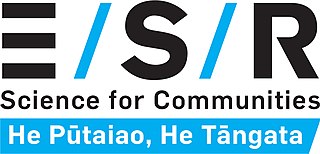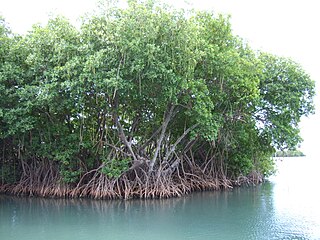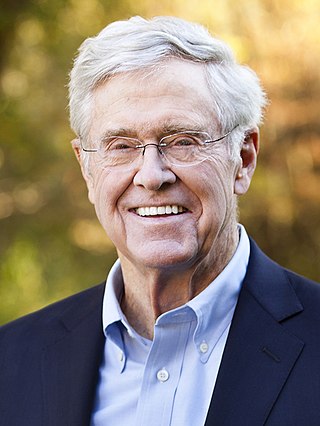Related Research Articles

The Institute for Public Policy Research (IPPR) is a progressive think tank based in London. It was founded in 1988 by Lord Hollick and Lord Eatwell, and is an independent registered charity. The think tank aims to maintain the momentum of progressive thought in the United Kingdom through well-researched and clearly argued policy analysis, reports, and publications; as well as a high media profile.

Sue Bradford is a New Zealand activist, academic, and former New Zealand politician who served as a list Member of Parliament representing the Green Party from 1999 to 2009.

The Manawatū River is a major river of the lower North Island of New Zealand. The river flows from the Ruahine Ranges, through both the Manawatū Gorge and the city of Palmerston North, and across the Manawatū Plains to the Tasman Sea at Foxton.

Roger Lawrence Kerr, a public policy and business leader, was the executive director of the New Zealand Business Roundtable, a free-market think-tank based in Wellington, New Zealand.

The New Zealand Initiative is a pro-free-market public-policy think tank and business membership organisation in New Zealand. It was formed in 2012 by merger of the New Zealand Business Roundtable (NZBR) and the New Zealand Institute. The Initiative’s main areas of focus include economic policy, housing, education, local government, welfare, immigration and fisheries.

The Resource Management Act (RMA) passed in 1991 in New Zealand is a significant, and at times, controversial Act of Parliament. The RMA promotes the sustainable management of natural and physical resources such as land, air and water. New Zealand's Ministry for the Environment describes the RMA as New Zealand's principal legislation for environmental management.

Manaaki Whenua – Landcare Research is a New Zealand Crown Research Institute whose focus of research is the environment, biodiversity, and sustainability.
Te Manatū WakaMinistry of Transport is the public service department of New Zealand charged with advising the government on transport policy. The Ministry works closely with other government transport partners, including the New Zealand Transport Agency (NZTA) to advance their strategic objectives.
The Committee for Economic Development of Australia (CEDA) is a bipartisan, non-profit organisation providing thought leadership and policy perspectives on the economic and social issues affecting Australia.

Ports of Auckland Limited (POAL), the successor to the Auckland Harbour Board, is the Auckland Council-owned company administering Auckland's commercial freight and cruise ship harbour facilities. As the company operates all of the associated facilities in the Greater Auckland area, this article is about both the current company and the ports of Auckland themselves.
The Joint Ocean Commission Initiative is a bipartisan, collaborative group in the United States that aims to "accelerate the pace of change that results in meaningful ocean policy reform." The Joint Initiative was established by the members of two major U.S.-based oceans commissions: the Pew Oceans Commission and the United States Commission on Ocean Policy. It was originally co-chaired by former White House Chief of Staff Leon Panetta and former Chief of Naval Operations Admiral James D. Watkins, chairs of the Pew and U.S. Ocean Commissions, respectively. Currently, the Joint Initiative is led by a Leadership Council, which is co-chaired by Christine Todd Whitman, former EPA Administrator under President George W. Bush and former governor of New Jersey, and Norman Y. Mineta, Secretary of Commerce under President Bill Clinton and Secretary of Transportation under President George W. Bush.

The Institute of Environmental Science and Research (ESR) is a New Zealand Crown Research Institute (CRI). Its purpose is to deliver scientific and research services to the public health, food safety, security and justice systems, and the environmental sector to improve the safety of, and contribute to the economic, environmental and social well-being of people and communities in New Zealand.

Christopher Pell Liddell is a New Zealand-American businessperson who served as Chief Financial Officer of Microsoft, the Vice Chairman of General Motors, Senior Vice President and CFO of International Paper, Director and Chairman of Xero and the White House Deputy Chief of Staff in the Trump Administration.

The McGuinness Institute Te Hononga Waka is a non-partisan think tank based in Wellington, New Zealand, working towards a sustainable future, contributing strategic foresight through evidence-based research and policy analysis. Established in 2004 by Wendy McGuinness, the Institute endeavours to undertake research that is independent, innovative and relevant, in a professional manner. Previously the Sustainable Future Institute, it changed its name in February 2012.

Mangrove ecosystems represent natural capital capable of producing a wide range of goods and services for coastal environments and communities and society as a whole. Some of these outputs, such as timber, are freely exchanged in formal markets. Value is determined in these markets through exchange and quantified in terms of price. Mangroves are important for aquatic life and home for many species of fish.

Charles de Ganahl Koch is an American billionaire businessman. As of November 2023, he was ranked as the 22nd richest man in the world on the Bloomberg Billionaires Index, with an estimated net worth of $60 billion. Koch has been co-owner, chairman, and chief executive officer of Koch Industries since 1967, while his late brother David Koch served as executive vice president. Charles and David each owned 42% of the conglomerate. The brothers inherited the business from their father, Fred C. Koch, then expanded the business. Koch Industries is the largest privately held company by revenue in the United States, according to Forbes.
Oliver Marc Hartwich is a German economist and media commentator. He is the Executive Director of the think tank The New Zealand Initiative in Wellington and a columnist with the online magazine Newsroom.
Motu Economic and Public Policy Research is an economic and public policy research institute based in Wellington, New Zealand.

Diligent Corporation, known as Diligent, is a software as a service company that enables groups to share and collaborate information for board meetings. Headquartered in New York City, and incorporated in Delaware, the company has offices in Galway, Ireland; London, UK; Washington, D.C.; Munich, Germany; Budapest, Hungary; Hong Kong; Bangalore, India; Sydney and Vancouver.

Mark Robert Ball is a New Zealand politician and former police officer. He was mayor of the Franklin District, in the Auckland region, for six years until the position was disestablished in 2010. He currently serves as leader of the Heartland New Zealand Party.
References
- 1 2 3 "New Zealand Institute: About Us". New Zealand Institute. Retrieved 4 June 2014.
- 1 2 "Roundtable and NZ Institute morph into new libertarian think tank". Nbr.co.nz. 4 April 2012. Retrieved 3 September 2017.
- ↑ Standing on the shoulders of science: Getting more value from the innovation ecosystem.
- ↑ "Merger yields new think tank, the New Zealand Initiative". Idealog.co.nz. 4 April 2012. Retrieved 3 September 2017.
- ↑ Pattrick Smellie (4 April 2012). "Roundtable and NZ Institute morph into new libertarian think tank". National Business Review.